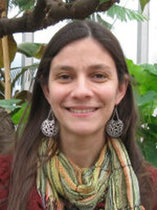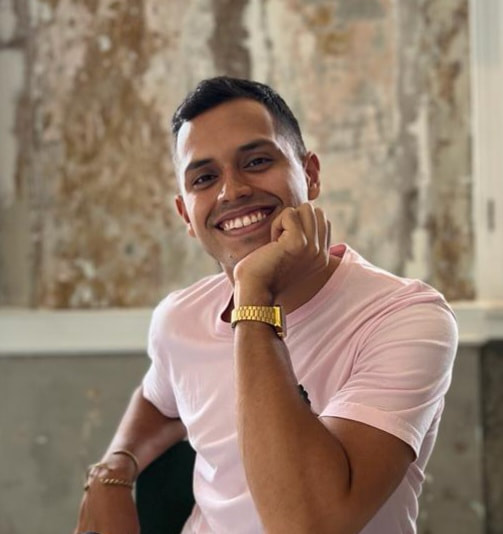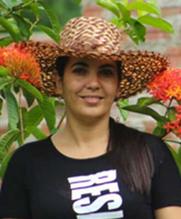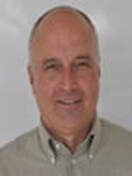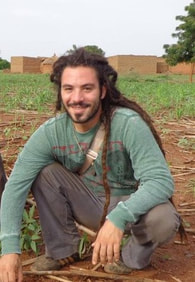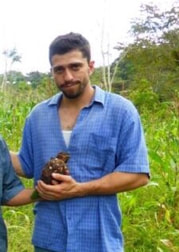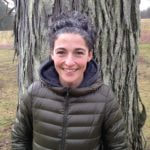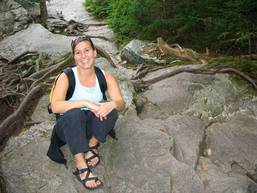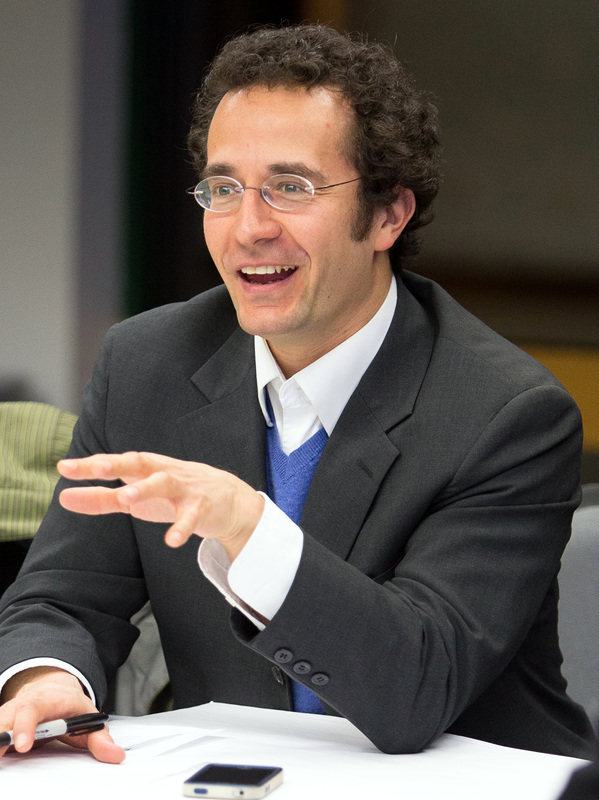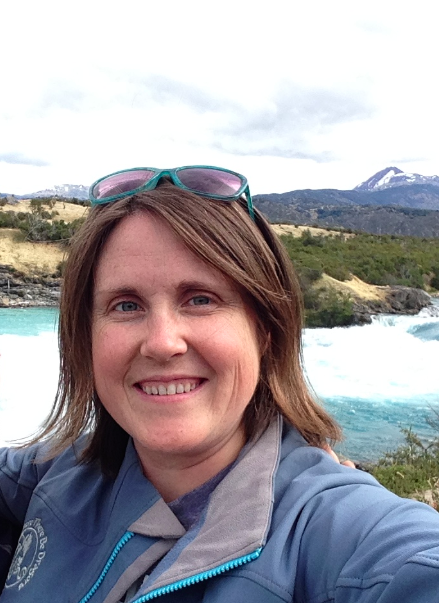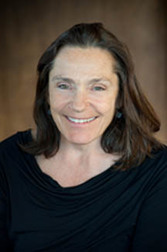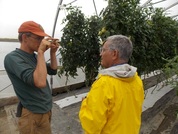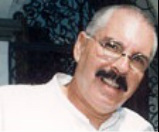Staff
Executive DirectorResearch Consultant
|
Margarita Fernandez joined CAI in January 2015 after nearly 20 years working on transdisciplinary action research and the design, implementation, monitoring, and evaluation of international cooperation projects in Cuba, Laos, Mexico, Nicaragua, Guatemala, and Venezuela. She specializes in transformative agroecology and food systems, sustainable livelihoods, and climate resilience, with a focus on participatory based approaches. Margarita has worked with multistakeholder teams at the research-practice-policy nexus to link results-based evidence with action and policy change.
In 1998, Margarita made her first trip to Cuba as a volunteer in the urban agriculture movement of Havana. Building from this experience, she conducted her Master’s research on the socioecological benefits of urban agriculture in Havana and New York City. While living on the island, Margarita led various sustainable agriculture research exchanges between U.S. and Cuban experts via Global Exchange, Food First and Oxfam. She also worked as a consultant to the United Nations Development Program (UNDP) where she co-led the development of a national level invasive species program. She served as external evaluation consultant of an EU funded national level agroecology project. In addition to her Cuba experience, Margarita has worked long term contracts as an urban farms community organizer in New York City (Green Guerillas), organic farm manager in upstate New York (Tierra Farm), program officer for organic agriculture and rice diversity program in Laos (Helvetas), technical reviewer for organic product certification with a focal area of Mexico, USA, and Canada (QAI), and global research consultant (Global Alliance for the Future of Food). She has also worked short-term consultancies for a wide range of groups such as Oxfam (Laos), the International Maize and Wheat Improvement Center (CIMMYT-Mexico), and the Global Plant Clinic-FUNICA (Nicaragua). Margarita has over a dozen articles published in peer-reviewed journals, book chapters, and grey literature. She holds a PhD in Agroecology from the University of Vermont, a Master’s in Social Ecology from the Yale School of Forestry and Environmental Studies, and a Bachelor’s in Biology from Tufts University. Curriculum Vitae Luis Alexis Rodríguez-Cruz is an applied scientist and writer based in Juana Díaz, Puerto Rico. He has been working with CAI since 2018 in projects related to sustainable food systems, climate adaptation, and food sovereignty. Luis's works have taken him from classrooms to labs, and from farms to forests, and fisheries. He strives to bring visibility and understanding to food systems' issues in the Caribbean and beyond. Particularly, through interdisciplinary projects and creative storytelling, Luis explores social-ecological interactions in relation to people's access to resources and food security outcomes, considering policy and power structures in the context of disasters and compound shocks. He holds a PhD in food systems from the University of Vermont, where he did a dissertation focused on Puerto Rican farmers' climate adaptation decision-making and food security outcomes, in light of their recovery from Hurricane Maria, to better understand structural drivers and barriers to strengthening adaptive capacity. Luis also writes a weekly column in La Fiambrera, his food systems newsletter, where he addresses current issues related to Puerto Rico's food systems.
CV in English and Spanishcv_larc_2023_español.pdf Website: click here |
Technical Advisory Committee
|
Leidy Casimiro
Professor at the Universidad de Sancti Spíritus, Cuba with more than fifteen years of experience in research and practice in the field of agroecology and permaculture. Graduated as an Economist in 2004 at the Universidad Central de las Villas, and a Lawyer in 2012 by the Universidad de Sancti Spíritus, Cuba. Received a PhD in Agroecology from the Universidad de Antioquia, Colombia, in 2016. Professor of master’s degree and doctorate programs at the Universidad de Matanzas and the Universidad Agraria de La Habana. Specialist and coordinator within the international Project BIOMAS Cuba and BIOENERGIA, from the Agronomic Experimental Station Indio Hatuey in Matanzas, Cuba. Active member of the National Group of Facilitators of Permaculture in Cuba and the Slow Food International movement. She created a methodology to evaluate the resiliency of family farms, used by the FAO and Slow Food International. Author of many articles in national and international scientific journals, chapters of books and a book, she also has attended several international and national conferences. Member of the Casimiro farming family at Finca del Medio, a world reference on agroecology and permaculture. |
|
Giraldo Martín Martín
El Ing. Agrónomo Giraldo Jesús Martín Martín, graduado en la Universidad de Matanzas en el año 1983, se desempeñó como director de la Estación Experimental de Pastos y Forrajes Indio Hatuey desde julio de 1997 hasta enero de 2020, actualmente es investigador y director del proyecto internacional Biomas-Cuba financiado por la Agencia Suiza de Cooperación Internacional (COSUDE). Trabajó en la facultad de agronomía de la Universidad de Matanzas desde 1983 hasta 1985, posteriormente se trasladó a la Estación Experimental de Pastos y Forrajes Indio Hatuey que pertenece a la Universidad de Matanzas y al Ministerio de Educación Superior. Es Investigador y Profesor Titular y Dr. en Ciencias Agrícolas desde el año 2004. Ha desarrollado su actividad científica en el campo de la evaluación y selección de especies forrajeras y en los Sistemas Sostenibles de Producción Agropecuaria. Ha participado y dirigido varios proyectos nacionales e internacionales. |
|
Georges Félix
Georges Félix is a native from Puerto Rico, with French roots as well. He is an assistant professor at the Centre for Agroecology, Water and Resilience (CAWR), Coventry University in the UK, a research associate at the Department of Agricultural Technology, University of Puerto Rico at Utuado in Puerto Rico, and a research associate at Centro Latinoamericano de Investigaciones Agroecológicas (CELIA), Colombia. He studied biology in Paris, and agronomy in Bordeaux and Montpellier. Currently, he is finishing a PhD in Farming Systems Ecology at Wageningen University (Netherlands) with extensive fieldwork in Burkina Faso. His specialty is analysis and co-design of tropical agroforestry systems. The agroecological approach (science, movement and practice) is always present in his work. George has also facilitated learning processes on agroecology with farmers in Puerto Rico and in West Africa, including for the UN Food and Agriculture Organization, the UN Development Program and the Global Environment Facility. He is a member of SOCLA, the Latin America Agroecology Society. After hurricane Maria hit Puerto Rico, Georges has been actively involved in the reconstruction process through agroecology, organising solidarity caravans and hands-on practical work to rebuild farms. He works in close collaboration with Boricua- La Via Campesina, SOCLA and FoodFirst. He is a co-founder of Collective Cultivate! in The Netherlands. |
|
Nils McCune
Dr. Nils Max McCune works with the Agroecology Support team to the Collaborative Crop Research Program (CCRP) project. He is a researcher and student of agroecology and social processes to build food sovereignty. His teaching experience includes graduate-level courses at Nicaragua’s National Agrarian University, as well as guest lectures at Evergreen College, the University of Oregon, the University of California in Berkeley and Santa Cruz, and Stanford University. His research focuses on the social dynamics of scaling agroecology, peasant economies, pedagogy of agroecological learning, land reform, and the autonomous peasant schools of agroecological social movements. For nearly a decade, he has worked with the international peasant movement, La Vía Campesina (LVC), to support the construction by LVC member organizations of agroecological territories in Latin America. He has also worked as an ally with US organizing processes such as the People’s Agroecology Process and the US Food Sovereignty Alliance. His research has supported the International Planning Committee for Food Sovereignty and the United Nations Food and Agriculture Organization. He has authored or co-authored over 20 peer-reviewed articles and book chapters. |
Board of Directors
|
Martha Caswell has a background is in community development, public policy, and applied research. Over the past 20 years, Martha has worked with communities on issues ranging from international public health to housing and social programs. Most recently her focus has turned to just and sustainable agri-food systems. Martha has expertise in project design, implementation, management, and evaluation. As Research & Outreach Coordinator for the Agroecology & Livelihoods Collaborative at the University of Vermont, she is often a bridge between academic and non-academic actors, working to draw out the expertise of all participants through research and analysis. In addition to serving on the VCI board, Martha is a founding board member of Migrant Justice. She and her family split their time between city life in Burlington and the family farm in Fairfield, VT.
Valerie Esposito lives with her husband and daughters in Burlington, Vermont where she has been the Director for the Environmental Policy program at Champlain College since July 2010. Her teaching and research focus ecological economics, environmental justice and local and global sustainability. She has lived, worked and conducted research in Costa Rica and Chile and has visited Cuba with students. She is also active in Vermont's Localvore food movement, is a Board Member of the Vermont Ibutwa Initiative and is on the Advisory Board of Vermonters for Sustainable Population. Valerie enjoys spending time with family and friends and taking advantage of Vermont's playground, through skiing, hiking, biking, canoeing, camping, theater visits, ultimate frisbee and seeing live music. Sustainable travel, gardening, reading, photography and cultivating her inner yogini also keep her busy.
Julian Portilla lives in Winooski, Vermont with his wife and three children. He directs the Master’s Program in Mediation and Applied Conflict Studies at Champlain College. In addition to his teaching and administrative responsibilities at the college, Julian has an active consulting and mediation practice.
His work involves the design and implementation of community, environmental and political consensus-building processes primarily in Latin America and the United States. He has worked extensively on issues of fishing and coastal development around the Baja Peninsula. Julian has served the UN both as an organizational consultant and as a Democratic Dialogue practitioner, assisting the UN to design and implement national dialogue processes in member states. In Vermont, in addition to serving on the VCI board, Julian mediates for the Environmental Mediation Center and works closely with social justice organizations such as Migrant Justice and Food for Farmers. He is a member of the Association for Conflict Resolution as well as the National Coalition for Dialogue and Deliberation. Helen Rortvedt joined VCI in 2017 as a Program Officer. She holds an M.A. in Sustainable Development from SIT Graduate Institute. Prior to joining VCI, Helen was a founding member of Food Connects, a nonprofit organization committed to advancing food system change in Southern Vermont. She also brings extensive experience in international and experiential education, having worked as a field instructor with Where There Be Dragons in Bolivia and Peru since 2009. Helen served as an Environmental Education Peace Corps Volunteer in Bolivia. She studied abroad in Cuba at the University of Havana as an undergraduate in 2002.
Stephanie Seguino is Professor of Economics at the University of Vermont. Prior to obtaining a Ph.D. from American University, she served as an economist in Haiti for several years in the pre- and post-Baby Doc era. Her current research explores the relationship between intergroup inequality by class, race, and gender, on the one hand and economic growth, and development on the other. She has also explored the economics of stratification, including the gender and race effects of contractionary monetary policy.
She has been an instructor in the African Program for Rethinking Development Economics (APORDE) in South Africa, Associate Editor of Feminist Economics and Journal of Human Development and Capabilities, and a member of the editorial board of Review of Keynesian Economics, as well as past president of International Association for Feminist Economics. More recently, she was guest editor of a special issue of Feminist Economics on the global economic crisis. She has consulted with a wide variety of international organizations, including the UNDP, UNRISD, UNCTAD, World Bank, AFL-CIO, and African Development Bank. |
Advisory Board
Founder |
Dr. Fernando Funes Aguilar is a Professor and Researcher at the Agricultural Experimental Station Indio Hatuey in Matanzas, Cuba. For more than 20 years, Fernando Funes has maintained that his country’s future agricultural production lies in organic and urban farming. Prior to 1991, Cuba depended to a great extent on the Soviet Union, and since its collapse Fernando has worked hard to promote sustainable agriculture to help Cubans make a living. In 1999, he and Maria del Carmen Pérez received the Right Livelihood Award. He is the lead editor of Sustainable Agriculture and Resistance: Transforming Food Production in Cuba, published in 2002 by Food First. Read Dr. Funes' full CV here.
Helmo Hernandez is an art historian and internationally recognized expert on Cuban art and culture. He is the founder and president of the Ludwig Foundation of Cuba, a non-governmental organization created to protect and promote contemporary Cuban artists and culture, develop research works and new technologies applied to the artistic field, and encourage dialogue with both Cuban and international cultural communities. Helmo visited Vermont with VCI in 2010, resulting in a Ludwig Foundation/VCI partnership committed to developing programming and cultural exchange between Vermont and Cuba.
Marisha Kazeniac has more than 20 years experience as an educator and administrator in the field of international education and intercultural learning and has earned Masters degrees in Special Education and TESOL. In 2004, she founded Vermont Institute on Cuba (VIC), developing humanitarian and educational programming connecting Vermont and the people of Cuba. Several years later, Marisha extended the resources of VIC to the Dominican Republic, developing local capacity-building programs as Vermont Caribbean Institute (VCI). Marisha’s work in promoting sustainable community growth emphasizes human and institutional capacity building and leadership development, environmental stewardship, and an appreciation of place.
|

